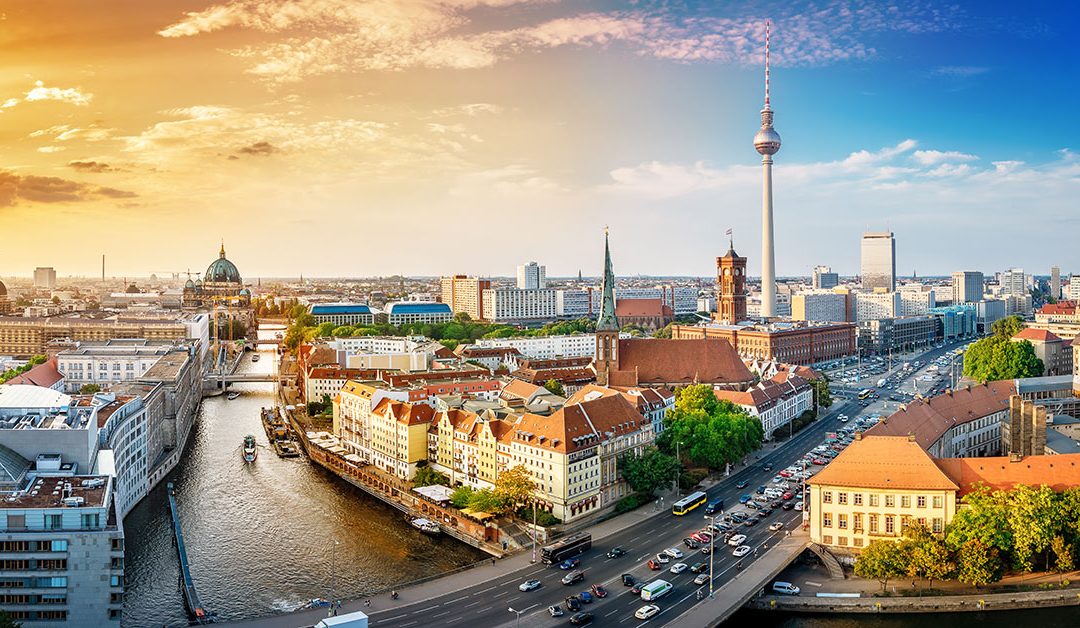Last updated October 2025
Germany is the 4th largest country in Europe and the second most populous after Russia. Its strong economy, rich culture, and high quality of life make it a popular destination for expats — including Australians moving to cities like Berlin, Munich, and Hamburg. From historical landmarks to incredible cuisine, Germany has a lot to offer. Before you make the move, here’s a checklist of 10 things to know.
#1 – There is No Speed Limit on Highways
If you’re coming from Australia, the first thing you’ll notice is that in Germany, people drive on the right-hand side. That means sitting in a different spot in the car, getting used to reversed indicators, and navigating roundabouts that suddenly feel a little unfamiliar — but don’t worry, after a few days your automatisms kick in. Then there’s the famous Autobahn: Germany is the only country in Europe where around 70% of highways have no official speed limit. Before you imagine chaos, remember that Germans are disciplined drivers, and where limits do exist, even 3 km/h over can land you a fine. Our advice? Enjoy the thrill if you’re comfortable, but always drive safely — think of it as a German lesson in precision, patience, and a touch of fun behind the wheel.
#2 – A Great Public Transport Network in Germany
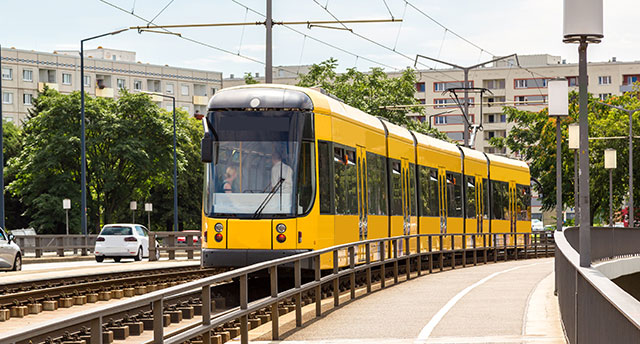
Great public transport in Germany with 24/7 services in big cities
Coming from Australia, you might be used to relying on cars for most journeys, but in Germany, public transport is a serious game-changer. Cities like Berlin and Munich boast extensive networks of S-Bahn, U-Bahn, trams, and buses, and many run late into the night or even 24/7 in key areas — perfect for night owls or those late-night train rides back from the office. Tickets are usually priced by zone and distance, and here’s a tip you’ll love: if you’re travelling with friends or family, grab a group ticket — up to five people can ride together all day on one pass, making it super cost-effective. Beyond the cities, Germany’s rail network stretches over 41,000 kilometres, connecting towns, cities, and regions quickly and reliably, with trains that can reach speeds up to 320 km/h. For Australians used to long drives, hopping on a train here is a revelation — fast, comfortable, and a surprisingly scenic way to discover your new home.
#3 – You Definitely Should Buy a Bike
If you’re used to hopping in the car for even the shortest trips back in Australia, Germany might surprise you: bicycles are a major part of daily life. Cities like Berlin see around 500,000 cyclists every day, riding along 620 km of dedicated bike paths, while Munich offers over 1,200 km of bike-friendly lanes. For the more adventurous, you can even cycle from Berlin to Copenhagen on a 630 km route — yes, that’s one epic ride!
Cycling isn’t just healthy — it’s fast, efficient, and often the quickest way to get through busy city streets. Plus, it’s a fantastic way to discover hidden corners of your new city, from architecture to parks and local cafés. Our advice? Invest in a sturdy bike, learn the local cycling rules, and enjoy the freedom of exploring Germany on two wheels. Once you’ve embraced it, you’ll see why so many locals swear by their daily ride.
#4 – Drink Beer, Eat a Pretzel And Discover More
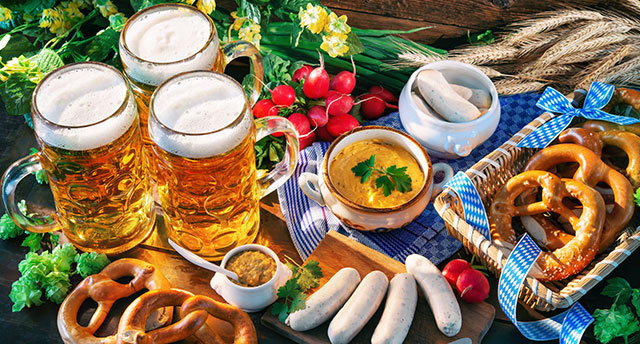
Some of the most famous dishes
If you think Germany is just about sausages and schnitzel, think again — the country’s food scene is as diverse as its regions. Each area has its own specialties, from Bavarian pretzels (Brezel) and Weißwurst in the south to döner kebabs and sauerkraut influenced by international cuisines in the cities. And yes, beer is a big deal — Munich’s famous Oktoberfest alone sees over 7 million litres consumed each year! Even outside the festival, Germans drink almost 100 litres of beer per person annually, often alongside hearty meals.
Trying local dishes is part of settling in. Don’t miss out on a traditional Bavarian breakfast or sampling the variety of breads and pastries — they’re truly a taste of culture. And remember, food in Germany isn’t just fuel; it’s part of the social fabric. Join a beer garden, grab a pretzel, and enjoy the experience — it’s one of the best ways to connect with locals and start feeling at home.
#5 – Get to Know The German Culture From Art to Football

Disney’s castle in the village of Neuschwanstein
Germany isn’t just about efficiency and engineering — it’s a country rich in history, art, and culture. From classical composers like Beethoven, Bach, and Schumann to stunning architecture in Berlin and Munich, there’s always something to explore. Museums, galleries, and historic sites are scattered across the country, giving you a front-row seat to centuries of European culture. And if you’ve ever wondered whether Disney’s castle really exists, the village of Neuschwanstein will make your childhood dreams come true — it’s the castle that inspired the iconic Disney design.
Sports are another essential part of German life. While many sports are enjoyed, football reigns supreme. Supporting a local team, catching a Bundesliga match, or even joining friends for a weekend game is a great way to immerse yourself in the local community. And don’t be surprised if a football chat quickly turns into a discussion over beers — it’s all part of the experience.
Embracing culture in Germany means observing local customs, being aware of sensitive topics like WWII in conversations, and enjoying the rich tapestry of music, art, and sport. For Australians, it’s an exciting way to feel connected to your new home while discovering layers of history and modern life all at once.
#6 – Sundays Are Quiet, Very Quiet
If you’re coming from Australia, Sundays in Germany might feel almost surreal. Thanks to a law called Ladenschlussgesetz, most shops are closed on Sundays — only restaurants, museums, cinemas, and some public transport services remain open. No last-minute shopping spree or Sunday errands here!
But it’s not just about shops. Sundays are meant to be quiet days. That means no loud music, power tools, or other noisy activities. Germans take this seriously, and breaking the rules can result in fines or even court action.
At first, it might feel restrictive, but once you adjust, you’ll likely enjoy the slower pace. It’s a chance to relax, spend time with family, enjoy nature, or explore your city without the usual hustle and bustle. Think of it as a weekly pause button — a German tradition that encourages rest and reflection.
#7 – If Not Already, You Will Embrace Recycling
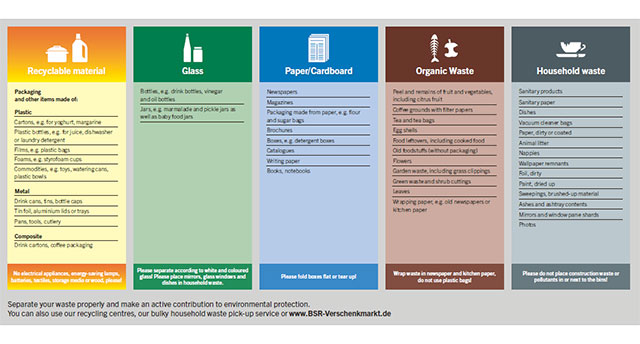
Recycling bins in Germany
If you think recycling back home is just about separating paper from plastics, Germany will give you a whole new perspective. Recycling isn’t optional here — it’s part of daily life, and the system is surprisingly effective.
Most households have five or six bins, separating everything from paper, plastics, glass, organic waste, and general trash. And here’s a fun twist for newcomers: many bottles and cans carry a small deposit (Pfand), typically between €0.08 and €0.25. Return them to a store or recycling point, and you get your money back. Over time, it can add up — a little eco-friendly incentive that also keeps your wallet happy.
For Australians used to simpler recycling, it can feel complicated at first. But once you get the hang of it, you’ll appreciate the order, efficiency, and environmental benefit. It’s just another way Germany blends daily life with sustainability — and yes, it’s something you’ll quickly get used to.
#8 – Money: Cash over Credit Cards When You Pay
If you’re used to tapping your card or paying with Apple Pay everywhere in Australia, Germany might feel like stepping back in time. Here, cash still rules. Many restaurants, cafés, and smaller shops are cash-only, so always keep some euros handy in your wallet.
Why cash? Germans like to keep track of spending and feel more in control when using physical money. On average, a German carries around €107 in their wallet — almost three times what Australians typically carry. Credit cards are accepted in larger stores, hotels, and some restaurants, but they aren’t as ubiquitous as you might expect.
Our advice: get comfortable with cash, plan ahead, and embrace it as part of the local rhythm. It may feel unusual at first, but once you do, you’ll see why Germans stick to this practical approach.
#9 – They Speak English, But You Should Learn German
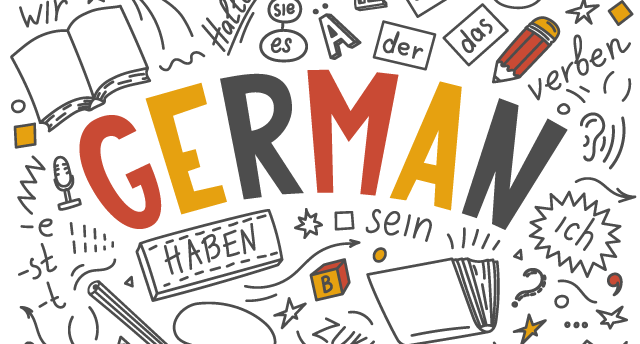
They speak good English, but learn German
Good news for Australians: many Germans speak English, especially in big cities like Berlin or Munich. Studies show that roughly 58% of Germans are comfortable with English, thanks to mandatory English education in schools. So yes, you can get by without speaking fluent German.
But here’s the insider tip: learning even a little German goes a long way. It helps you connect with locals, navigate bureaucracy, and truly feel at home. Simple phrases like Danke (thank you), Guten Tag (good day), or Entschuldigung (excuse me) will earn smiles and make daily life smoother.
If your work or residence involves interacting with government institutions, you may need stronger language skills. A typical German course runs about 750 hours (roughly 30 weeks) to reach a functional level. Think of it as investing in your integration — the more you learn, the richer your experience will be.
Learning the language isn’t just practical — it’s part of embracing your new life in Germany. Even a few words can help you feel connected to your community and culture.
#10 – A German Health Insurance is Mandatory
In Germany, health insurance is mandatory, no exceptions — even for students or short-term residents. Whether you choose public or private coverage, you must be insured from day one.
Public insurance (gesetzliche Krankenversicherung) is regulated, offering a broad range of healthcare services at a fixed cost. Private insurance provides extra benefits, like faster appointments or additional treatments, but comes at a higher price. You’re free to choose your provider, but the law ensures that everyone has coverage.
Skipping health insurance isn’t just risky — it’s illegal. Penalties include paying the full insurance premium retroactively, plus a monthly surcharge. So, it’s essential to sort this out before or immediately after your move.
Think of German health insurance as a safety net that keeps you covered, no matter what life throws at you. For Australians used to Medicare, it may feel different, but once set up, it’s straightforward — and peace of mind is priceless.
Bonus: Shipping Furniture and Belongings to Germany
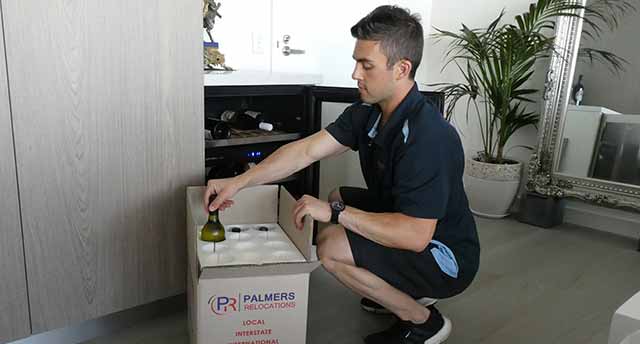
Palmers Relocations moving services
We’ve covered the essentials — from Autobahn thrills to quiet Sundays, recycling habits, and the cash culture. But if you’re planning a permanent move, there’s one more piece of the puzzle: getting your household goods and personal belongings safely to Germany. That’s where Palmers Relocations comes in.
Whether it’s a few boxes or your entire home, we offer flexible options: shared containers for smaller shipments, or 20ft and 40ft containers for full households — including cars. Our team handles every step of the process, from packing and customs clearance to delivery at your new German home.
Australians moving to Germany can also benefit from GST exemptions on used personal effects, making the process smoother and more cost-effective. As a general rule, items should be owned and used for at least six months before shipping to ensure duty-free entry.
Planning ahead is key. Contact our friendly Palmers team for advice, guidance, or an obligation-free quote — we’ll make your move as seamless as possible. Germany is waiting, and with Palmers by your side, you’ll be settling into your new life in no time!
Complete the form and our friendly team will be in touch.

